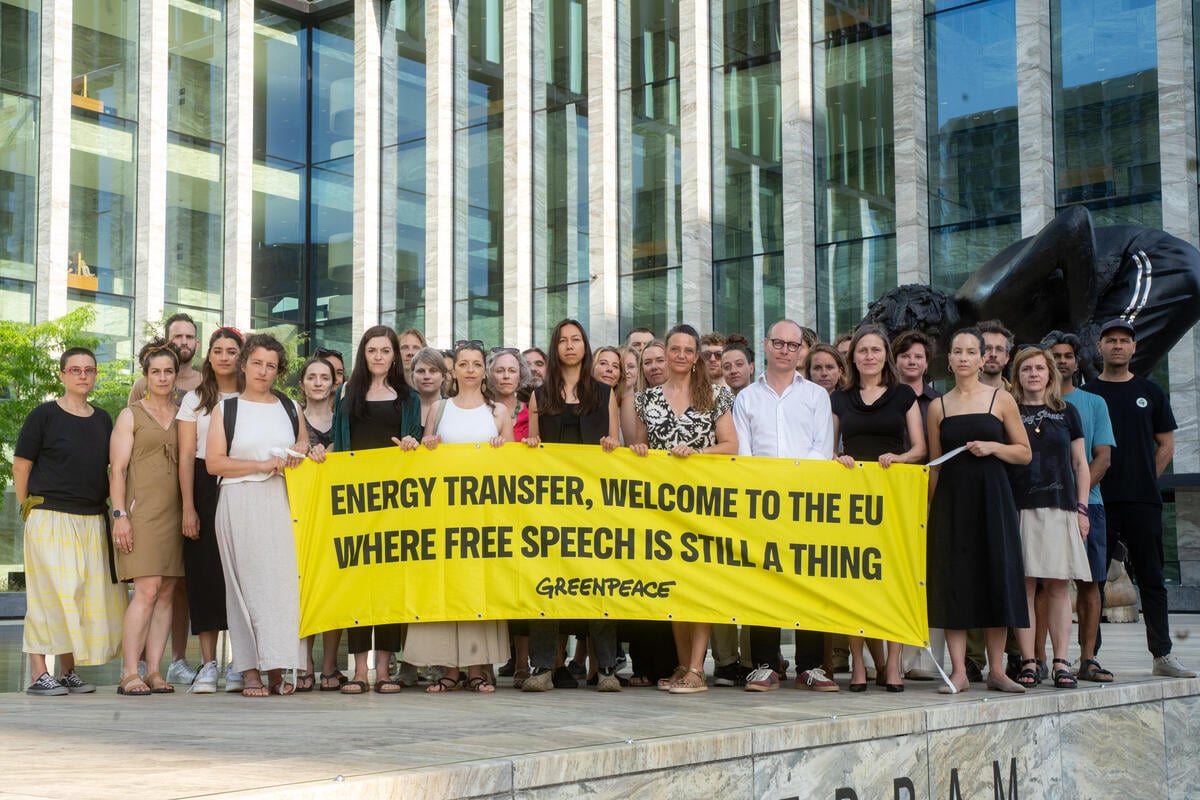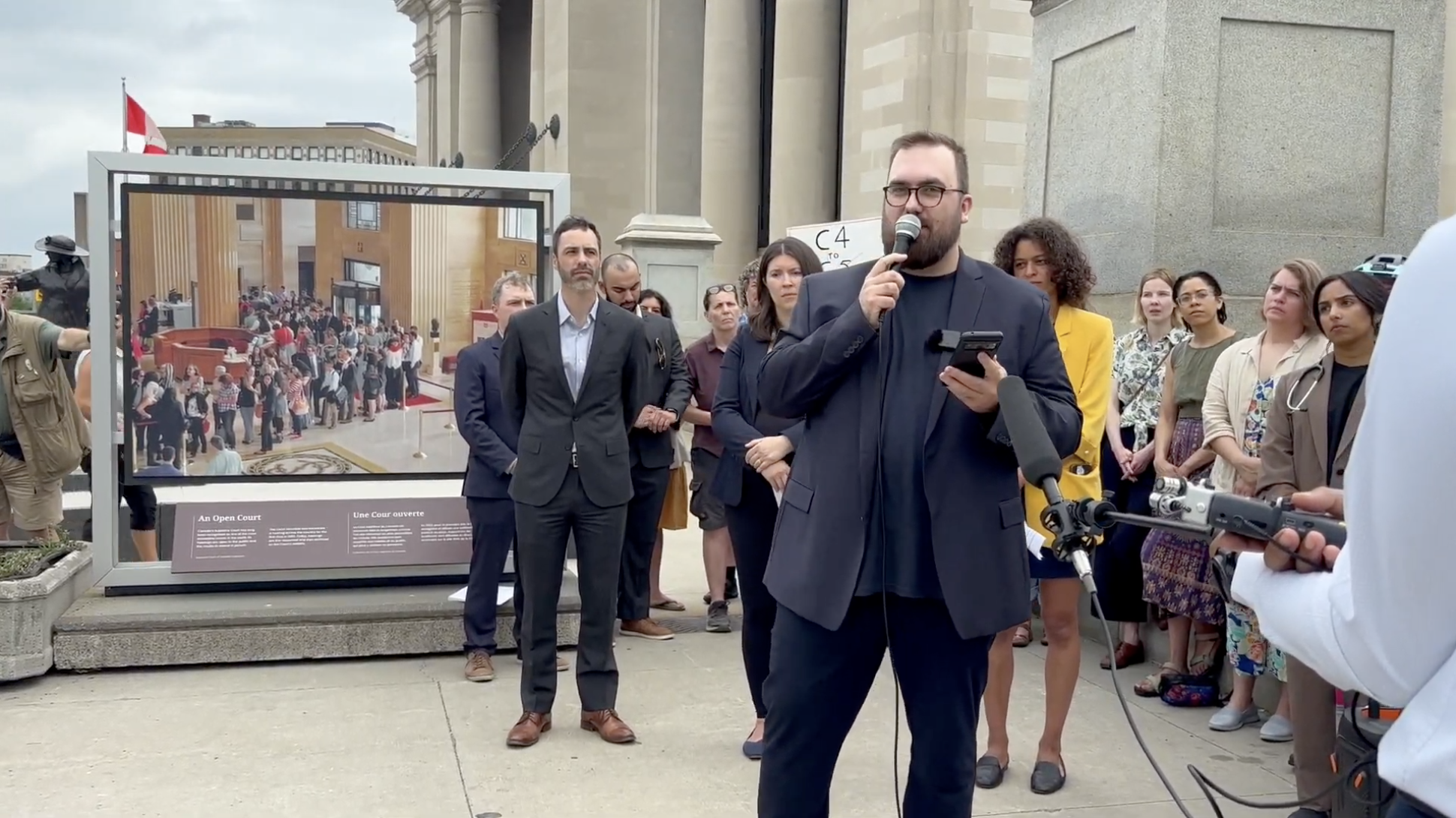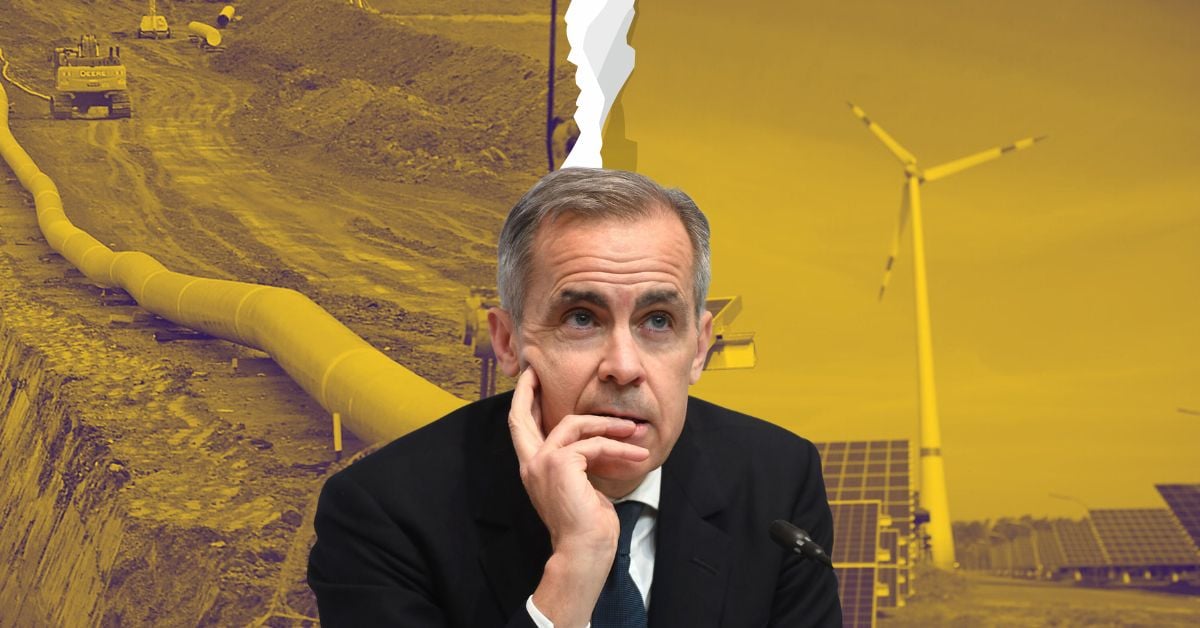(TORONTO) – Canada’s big five banks will be forced out of the United Nations’ net zero banking club unless they present a credible plan to phase out support for fossil fuels and significantly increase their 2030 greenhouse gas reduction targets, according to a new report from Greenpeace Canada.
“The UN has called their bluff, and now Canada’s big banks must either get serious about phasing out their support for fossil fuels or get kicked out of the Glasgow Financial Alliance for Net Zero,” said Keith Stewart, senior energy strategist with Greenpeace Canada. “The banks’ current commitments fall woefully short of what the UN has set as a minimum standard.”
RBC, Scotiabank, TD, CIBC and BMO all joined the Glasgow Financial Alliance for Net Zero (GFANZ) in October 2021, which committed them to aligning their lending and investment portfolios with a science-based pathway to net zero by 2050. Yet in 2021, they increased funding to fossil fuels and all 5 banks now lie within the 20 largest funders of fossil fuels in the world.
Following repeated expressions of concern about greenwashing, the UN issued a clarification in June 2022 of the criteria for membership in GFANZ and other UN-backed Race to Zero initiatives [1]. The new criteria makes it clear that Canadian member banks must “phase down and out” support for unabated fossil fuels in line with a science-based pathway like the IEA’s 2021 Net Zero scenario, and commit to a minimum 50 percent cut in financed emissions by 2030. They are also required to align their lobbying and public relations campaigns with these more stringent targets.
The new report, Racing to Zero? Canadian Banks’ Dubious Net Zero Commitments, assesses the current commitments made by the banks and finds they fall far short of the UN criteria [2].
The UN is establishing a process for kicking out members who don’t meet their criteria [3] and that’s given them until June 15, 2023 to publish a plan on how they will do so. Rather than seeking to weaken the application of Race to Zero criteria [4], Greenpeace Canada is calling on Canadian banks to meet the UN deadline for releasing a plan on phasing out fossil fuels, increase their 2030 reduction target to at least 50 percent and stop advocating for oil production increases. These climate plans should integrate respect for Indigenous rights and strategies to protect and restore biodiversity as core elements [5].
“It’s time for banks to up their game on climate to at least meet the UN’s minimum standards on climate finance, rather than lobbying to lower that bar,” said Stewart.
– 30 –
Note to editors:
The report is available here.
[1] Racing to Zero? Canadian Banks’ Dubious Net Zero Commitments, p.6.
[2] To ensure accuracy, Greenpeace Canada shared a draft of the report with the five banks in advance of release. Only Scotiabank provided comments and these have been incorporated into the report. The final report will be shared with GFANZ leader Mark Carney and Canada’s former Environment Minister Catherine McKenna, who was appointed by the UN as chair of its ‘greenwashing commission’, the High-Level Expert Group on the Net-Zero Emissions Commitments of Non-State Entities.
[3] Financial Times, August 22, 2022. Finance groups risk being kicked out of Mark Carney-led climate coalition
[4] Racing to Zero? Canadian Banks’ Dubious Net Zero Commitments, p.21.
[5] More specifically, our detailed demands are:
- Integrate the findings of the IEA Net Zero scenario into their climate strategies, including a prohibition on the financing of new fossil fuel projects as well as new corporate level financing of companies expanding fossil fuel production and transportation.
- Present absolute emission reduction targets, including fossil fuel financing reduction targets and implementation plans covering all of their financial services, with a goal of halving financed emissions by 2030. These targets must be aligned with the goal of keeping warming to 1.5˚C.
- Uphold, affirm and respect Indigenous rights, including through a commitment to adhere to policies and practices that ensure the Free, Prior and Informed Consent (FPIC) of Indigenous peoples as defined in the United Nations Declaration of The Rights of Indigenous Peoples (UNDRIP) under Article 32.
- Commit to protect and restore biodiversity in all financing activities. These strategies should be created in deep partnership with Indigenous Peoples, whose rights and knowledge are key to the regeneration and responsible stewardship of stolen lands.
For more information, please contact:
Laura Bergamo, Communications Officer, Greenpeace Canada
[email protected] ; +1 438 928-5237



